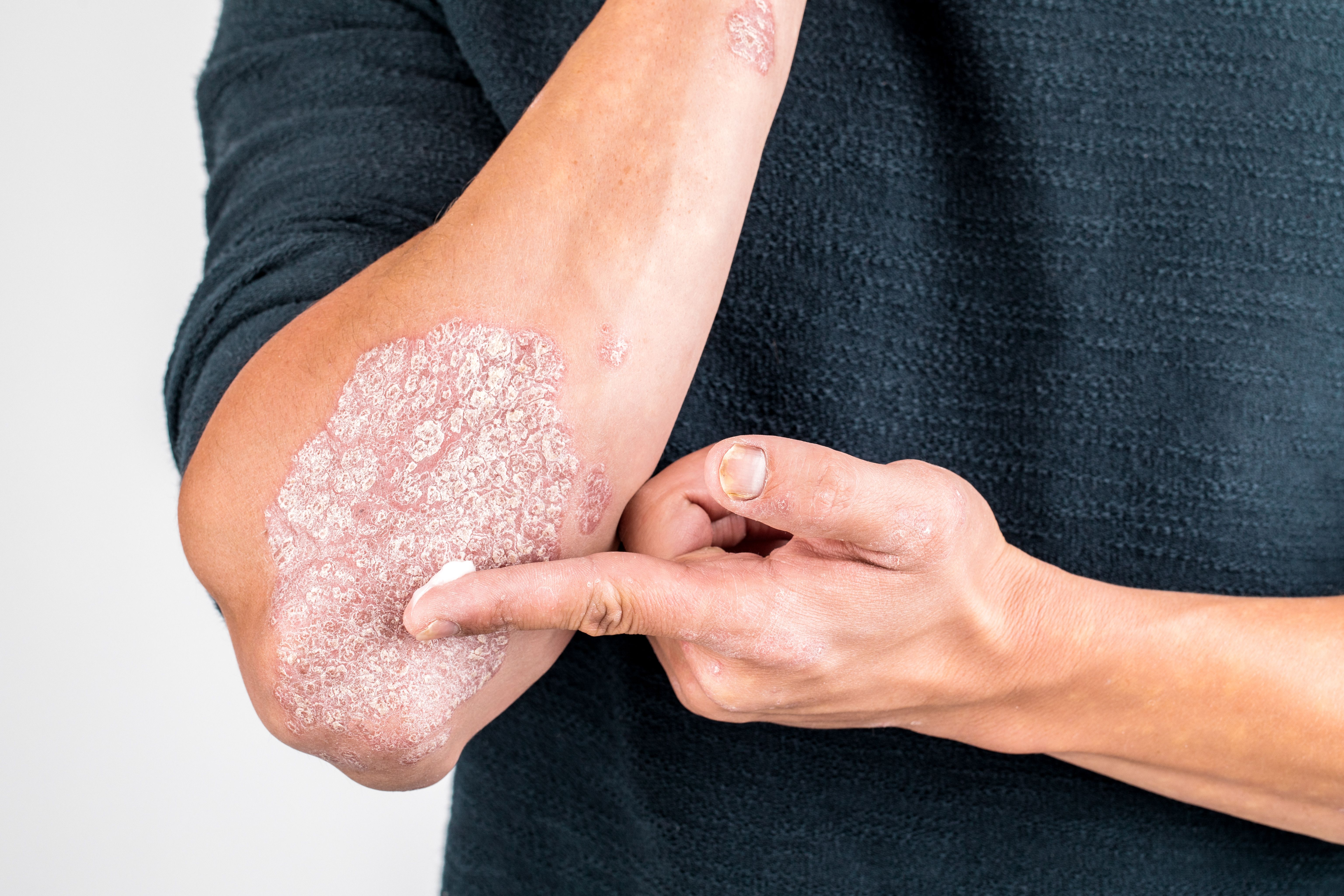- Acne
- Actinic Keratosis
- Aesthetics
- Alopecia
- Atopic Dermatitis
- Buy-and-Bill
- COVID-19
- Case-Based Roundtable
- Chronic Hand Eczema
- Chronic Spontaneous Urticaria
- Drug Watch
- Eczema
- General Dermatology
- Hidradenitis Suppurativa
- Melasma
- NP and PA
- Pediatric Dermatology
- Pigmentary Disorders
- Practice Management
- Precision Medicine and Biologics
- Prurigo Nodularis
- Psoriasis
- Psoriatic Arthritis
- Rare Disease
- Rosacea
- Skin Cancer
- Vitiligo
- Wound Care
Article
Retinoids, vitamin D useful for hyperproliferative skin disorders
Author(s):
Dermatologists could be making greater use of topical retinoids and vitamin D preparations in treating a variety of hyperproliferative and other skin disorders. In the early days of psoriasis treatment, the “sandwich theory” focused on epidermal turnover and inflammation, with one drug or strategy for each layer.
Denver - Dermatologists could be making greater use of topical retinoids and vitamin D preparations in treating a variety of hyperproliferative and other skin disorders, an expert says.
Topical vitamin D and retinoids impact cell differentiation rather than keratinization, says Neal Bhatia, M.D., a dermatologist in private practice in Long Beach, Calif., and an associate professor of dermatology at the Harbor University of California Los Angeles Medical Center.
In the early days of psoriasis treatment, he explains, the “sandwich theory” focused on epidermal turnover and inflammation, with one drug or strategy for each layer.
“And the recipe of using salicylic acid and urea to stimulate epidermal turnover led to using steroids to reduce inflammation and keratolytics to achieve sloughing,” Dr. Bhatia says. Vitamin D products and retinoids initially fell into the latter pigeonhole, he says. However, “Their mechanism is not keratolytic. Those two drugs are meant to restore cell differentiation, which plays a more significant role in modifying psoriasis.”
As such, he says that topical vitamin D and retinoids are underutilized not only in psoriasis, but also in other hyperproliferative disorders such as ichthyosis and acanthosis nigricans.
“Whether that’s because of cost, irritation, or other reasons, those two classes of drugs - based on their mechanisms - will have impact on those disease processes,” Dr. Bhatia says.
Vitamin D’s role in promoting differentiation also explains its efficacy in reducing the risk of steroid-induced skin atrophy, Dr. Bhatia says. Case reports of morphea1 exemplify this problem, he says.
“Steroid overuse can create more atrophy, and the use of vitamin D can reduce that risk,” Dr. Bhatia says.
Many recent case reports and small studies also highlight the role of topical retinoids in chronic hand dermatitis2, warts3, and chemoprevention4.
“All those applications are based on retinoids’ impact on differentiation over time, whether the initial insult comes from UV, the human papilloma virus, or other inflammation triggers,” Dr. Bhatia says. “That’s where the application of a retinoid is important.”
Disclosures: Dr. Bhatia is a consultant, investigator and/or speaker for Anacor, Aqua, Bayer, DUSA, Ferndale, Galderma, Leo, Novartis, Promius, Quinnova and Valeant.
NEXT: REFERENCES
Disclosures: Dr. Bhatia is a consultant, investigator and/or speaker for Anacor, Aqua, Bayer, DUSA, Ferndale, Galderma, Leo, Novartis, Promius, Quinnova and Valeant.
References
Zwischenberger BA, Jacobe HT. A systematic review of morphea treatments and therapeutic algorithm. J Am Acad Dermatol. 2011;65(5):925-41.
English J, Graham-brown R, De sica chapman A, Alexandroff AB. Everyday clinical experience of alitretinoin in the treatment of severe chronic hand eczema: seven case studies. Clin Exp Dermatol. 2011;36 Suppl:1-2.
Gaston A, Garry RF. Topical vitamin A treatment of recalcitrant common warts. Virol J. 2012;9:21.
Tang JY, Chiou AS, Mackay-wiggan JM, et al. Tazarotene: randomized, double-blind, vehicle-controlled, and open-label concurrent trials for basal cell carcinoma prevention and therapy in patients with basal cell nevus syndrome. Cancer Prev Res (Phila). 2014;7(3):292-9.
Newsletter
Like what you’re reading? Subscribe to Dermatology Times for weekly updates on therapies, innovations, and real-world practice tips.









